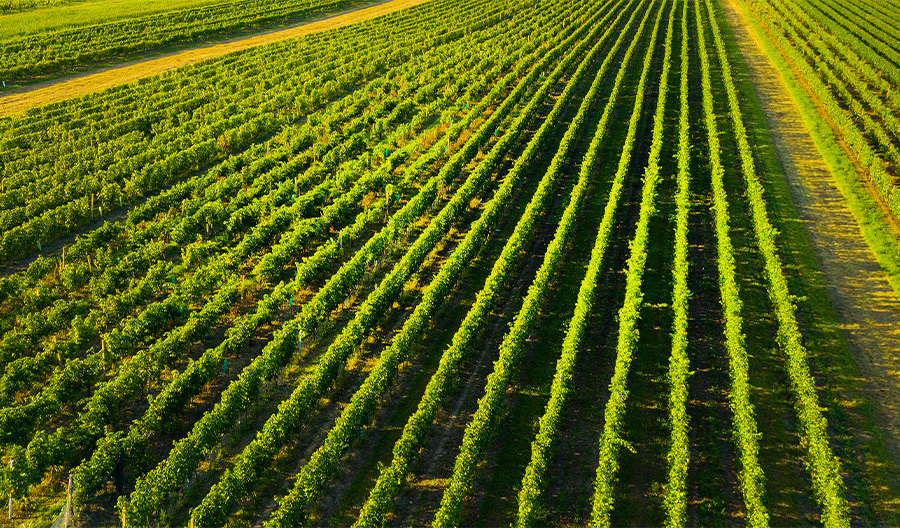With today’s consumers being more informed and engaged than ever, it’s no surprise that the demand for eco-conscious wine has been steadily on the rise. Millennial and Gen-Z consumers are especially interested in supporting brands that prioritize environmentally friendly growing and production methods—and they are willing to pay premium prices for them, too. According to a 2020 study by the Wine Institute, “Younger consumers of legal drinking age are significantly more engaged with sustainability and view it as increasingly important to protect future resources.”
To meet this growing demand, more and more wine producers are adopting different certifications to prove their earth-friendly bona fides. Store shelves and wine menus abound with brands touting labels like “organic,” “biodynamic,” and “certified sustainable.” While these certifications share some common components, they aren’t interchangeable. To better help your customers select a bottle or brand that best fits their values, it’s worth understanding the meaning, practices, and processes these various certifications encompass.
Certified Organic wines are produced using methods that rely on natural inputs and expressly prohibit the use of synthetic chemicals, including synthetic herbicides and pesticides during farming and synthetic additives during production. To receive this certification, a US producer must meet extensive, exacting requirements set by the USDA and the Alcohol and Tobacco Tax and Trade Bureau. The EU controls organic regulations and certifications for European wines.
Biodynamic wines are made from grapes grown using a specific set of practices and rituals aimed at promoting the health and vitality of the vineyard. Based on the principles and techniques of Rudolph Steiner, an Austrian philosopher from the 1920s, biodynamic wine growing focuses on treating the vineyard as an interconnected, living organism that includes not just the vines, but also the soil, water, air, and surrounding environment. Its highly specialized approach incorporates practices like growing according to the lunar calendar and using specific astrological principles to determine the timing of activities such as planting, pruning, and harvesting. Biodynamic certifications are governed primarily by Demeter International, a certifying body that sets strict standards for biodynamic agriculture.

Sustainably grown wine refers to the practice of cultivating grapes and/or producing wine in an environmentally friendly and socially responsible manner. Minimizing the impact on the environment, conserving natural resources, and protecting the health and safety of workers and local communities are the central goals.
Some key practices that are commonly used in sustainable wine growing include:
1. Integrated pest management, which uses natural predators and other non-toxic methods to control pests and diseases in a vineyard.
2. Soil conservation techniques like cover cropping, composting, and reduced tillage to improve soil health and fertility.
3. Water conservation efforts such as drip irrigation and other efficient irrigation methods.
4. Energy conservation via renewable sources including solar power and wind power.
5. Community protection such as providing fair wages and healthy conditions for workers; preserving local ecosystems, etc.
Note, that sustainable wine can be made by incorporating organic or even biodynamic practices, but they can also grow grapes using conventional methods.
A vineyard, a winery, or both can be certified sustainable. To become certified, a producer must go through a rigorous assessment process, including on-site inspections, audits, and documentation reviews. The largest sustainable certification is the Certified California Sustainable Winegrowing (CCSW), which is governed by the California Sustainable Winegrowers Alliance. Two other prominent sustainability certifications include Sustainability in Practice (SIP) and Lodi Rules, both of which are based in and apply to California-produced wine.
Now that you have a basic understanding of the different “green” wine certifications, we encourage you to partner with your Southern Glazers sales representative to identify and support the environmentally responsible wine brands available in your market. Once you know the producers and products available to you, SG Proof is ready and waiting to make your eco-friendly wine orders (and re-orders) quick and easy!

